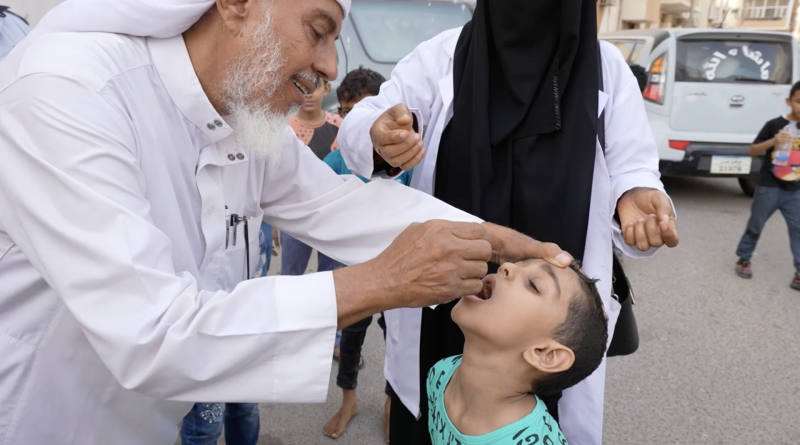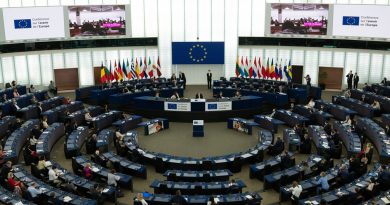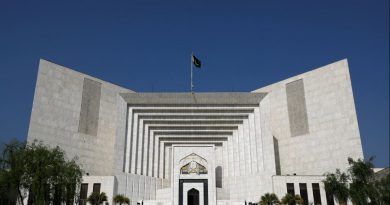Iran-backed Houthis responsible for ‘sharp’ rise of polio cases in Yemen
A sharp increase in potentially fatal polio cases in Yemen has been linked to the Houthis, who are backed by Iran.
A three-day vaccination campaign by the nation’s health ministry to protect more than 1 million young children under the age of five against the crippling and lethal disease was completed on Tuesday.
At least 230 new cases of polio were reported in Yemen over the previous two years, prompting the move, according to officials.
The majority, though, were in Houthi-controlled, densely populated areas.
Because they believe they are being exploited in a Zionist and US conspiracy to destroy them, Houthi authorities have warned Yemenis against getting shots or taking drugs.
But Yemen’s health minister, Qasem Buhaibeh, asserted that the militia group’s obstruction of immunisation campaigns in Sanaa and other places had sparked a rise of polio and other diseases.
In a tweet, he said: “After having been eliminated, polio has reappeared in Yemen due to the Houthis’ anti-vaccine and anti-mass-immunization initiatives.
“These anti-science and anti-knowledge measures will have serious repercussions for the health of all Yemenis.”
Health professionals gave vaccination doses to children during the recent immunisation drive in the provinces of Aden, Hadramout, Abyan, Shabwa, and other government-controlled territories.
A simultaneous awareness-raising campaign for the booster dose of the polio vaccination was launched on social media, as well as on local television and radio stations and in large cities with the use of posters.
Health officials in Yemen said that 120 districts in the 12 provinces under government control total 1,290,056 individuals have been impacted.
Dr. Ishraq Al-Subaee, a health official in Aden, told Arab News that although Yemen was declared polio-free in 2009, the ministry had recorded more than 230 cases in the two years prior, the most of which were in Houthi-controlled areas.
Houthi opposition to vaccination campaigns has been blamed by Yemeni health officials, doctors, and local media for an increase in polio and measles infections in cities including Sanaa, Hajjah, Al-Mahweet, Hodeidah, and Saada.
Al-Subaee said the spread of diseases was “scaring” the Ministry of Health and other government agencies. “We conducted this preventive effort in the freed territories to prevent the recurrence of the illness.”
The doctor mentioned that government-controlled areas have seen almost no occurrences of the disease in recent months thanks to three previous polio vaccine campaigns.
The Houthis have held seminars and lectures in Sanaa to discourage people from obtaining vaccinations or medications from outside, advising them to utilise honey and herbs instead and consult Houthi officials if they become ill.
The Houthi prime minister and other officials attended a workshop titled “Vaccines’ Threat to Humanity,” which was sponsored by the Houthi health authorities and warned the public against getting themselves or their children immunised.
Former Houthi Ministry of Health employee Abdulaziz Al-Dailami stated his children have improved in health and activity after they had stopped receiving immunisations.
During the workshop, he said: “We advise against immunizations. I apologize to the Yemeni people for being a sponsor or leader of the vaccines committee over extended periods of time. I beseech God to accept my contrition.”
At least ten children have died from measles and polio infections since the beginning of last month, according to health workers in Houthi-controlled areas, and many more have also been infected.
In a Facebook post, Sanaa doctor Wahaj Al-Maghtari said: “Assaulting vaccinations and persuading people to forsake them is a serious social crime, and even a crime against future generations, since it reintroduces dangerous illnesses that we had previously eradicated.”
Many doctors in Sanaa posed for a photo before giving the public polio vaccinations in an effort to refute the Houthi narrative.



